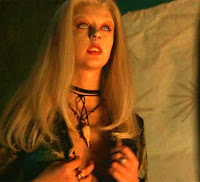Hey! Welcome back to the A2Q method. Thanks for your patience while I tossed down a bunch of other stuff.
Anyway… let’s get back to it.
Actually, before we get back to it, I want to mention something I should’ve brought up before. When this takes off and I combine it all together in a book, I’ll make sure this ends up back at the start of the plot post. Or, really, on the tail end of ideas.
We’re all creative in slightly different ways. We’re always going to start with ideas, yeah, but where we go from there is going to be different for all of us. And probably for every project. For some folks, ideas initially spark plots, for other people, ideas lead straight to characters. These are all correct, because storytelling is an art, and in art “correct” is what works for you.
So plot, characters, story, setting… these are all things you might come up with in a different order than I’m laying them out here. To be honest, because this is all early stages stuff, I’m just kinda tossing it out in the order it feels natural to me. A different order might feel a little more natural to you. We’re still early in the process and it’s all going to be a little different for everybody.
Here’s a way to think of it. When we’re following a recipe, it’s going to have a bunch of things in it. Two eggs, a cup of sifted flour, half a cup of sugar, and so on. There’s no reason I can’t start by measuring out the sugar. Or sifting the flour. Or maybe I’ll crack the eggs and put them in one of those little steel prep bowls. They’re just the ingredients, and the order we prepare them isn’t important, just that we have them ready and on hand when we start to cook.
Make sense?
Okay, so… characters.
Characters are the people who populate my world. They’re the ones who live in it every day. One way or another, they’re going to be our entry point and our guides into that world. Maybe we’ll be looking over their shoulders. Maybe we’ll be in their heads, hearing their thoughts and experiencing everything with them. However we do it, everything is really going to come down to them. I can have the coolest mystery ever, but if the people trying to solve it are annoying idiots my readers won’t even make it halfway through.
So, let me toss some character stuff at you.
First off, we’re going to have a protagonist. You may have heard them called the main character or the hero. I’m probably going to go with this because it’s a lot quicker to say (and type) than “protagonist.” We may have more than one hero in our book. I’ve seen some with a half a dozen or more, but those tend to be larger manuscripts. I think it’s harder (but not impossible) to have a lot of really good, well-rounded heroes in a smaller book, just because we’ve got less space to develop them. Not saying it’s impossible, but it’s going to be a lot harder to have ten main characters in a three hundred page book than in a nine hundred page one.
Even with fewer heroes—even just one—it’s important to remember right up front that I might have a lot of ideas about this character that never make it into the book. I can have a five page character sketch about their childhood, school years, music preferences, religious beliefs, sexual history, fashion sense, life goals, and retirement plans. That’s fantastic, and it’s never bad to know all these things about my characters. But it’s important to remember they might not all be directly relevant to the plot of my book, the events happening right now that stand out from every day events for my hero.
Consider it this way—you know all that stuff about yourself, right? All those things I just mentioned above? But how often do they come up? Pick one and think about the last time it was an important point in a given day. When was the last time it was important before that? Some might be important to bring up in a job interview, others will be more relevant on a date. But it’s really rare that they’re all going to be important.
Also it’s important to note two things when we say “hero.” One—which is hopefully obvious, but just in case—is that I’m using hero in the gender-neutral sense, not the masculine one. My protagonists can be whoever I want them to be. Second is that we’re using it in the classic literary sense, not in the “saved a busload of Chechen orphans” way. My hero doesn’t need to be someone who rappels down buildings or fires two guns whilst jumping through the air. “Hero” in this case just means they’re the focus of our attention.
Now, besides our hero, we’re probably going to have some supporting characters. These are the folks who, well, help support the character’s journey through the tale I’m telling. They’re the best friends and co-workers and werewolf hunting lodge-mates of our hero. In some cases they might actually help support the main character’s journey. In others, they’re helping support the journey itself, giving more flavor and detail to the world.
It’s key to note that, by their very nature, my supporting characters aren’t going to be as well-developed as my main characters. They can still have fun quirks and odd habits and backstories, but I’m just not going to be spending as much time with them. So I need to be aware of (sorry to bring math into this) what percentage of the book they’re actually going to be in, and what percentage of that is going to be devoted to furthering the overall plot or my hero’s journey.
Wow. Did I just say “hero’s journey” in a non-mocking way? I’m so sorry. We’ll deal with that later.
We’re also going to have some background characters. These are the folks who, like in a movie, sort of drift in and out around my protagonist, but rarely interact with them in any meaningful ways. Bartenders. Taxi drivers. The 108 other people who work in the department store. The twenty-three artisans at the lodge who make werewolf-hunting equipment. We may get quick descriptions of these folks, they may have a line of dialogue here or there, but they’re rarely key to anything past filling out a room… or maybe a few lines on a casualty report. Most of them won’t even get a name.
In my humble opinion, it’s really important to remember the hierarchy with these people. If my supporting characters are a tier below my heroes in terms of development, these background folks are going to be a tier below that. They’re not going to have a lot of description or backstory because… well, they’re just not that important. Nothing hinges on them. Think of those percentages I mentioned for supporting characters and apply it here. We all love rich, well-rounded characters, but do I have the time or space (heck, do my readers have the patience) to spend half a page on someone who’s not going to be at all relevant to this book? Once for the really cute cashier with the magenta hair. Maybe one more time for that archivist with the interesting accent and the hat. But these really, really need to be exceptions.
And there’s a reason for this. Readers automatically assume that if I mention someone in detail, they’re going to be important to the narrative. They take note of these characters, file them away for later reference. Time I spend with someone (or someones) who isn’t important is time I’m not spending with the characters who are important and, probably, time spent confusing my reader. I don’t want them taking mental notes on two pages of Andrea’s backstory only to find out she’s just here to say “You can go in now.” I might get away with it once, maybe twice, but this is something that’ll burn patience really fast.
Now, one last type of character we’re probably going to have is the antagonist. This is the person (or persons) who are between my hero and whatever they’re trying to do—you remember, that plot we were talking about last time. Often they’ve got a vested interest in my hero not doing that thing, in failing to achieve their goals.
It’s important that my antagonist be an actual character, not just a cliché obstacle going “Muah-ha-hah” while they kick sand in my hero’s face. They’ve got a history, a life, that led them to end up in this position now. In their own way, they need to be as well-rounded as my hero or they’re just going to look like a cliché. And clichés are boring
A few quick things to keep clear. First my antagonist isn’t necessarily a villain. They can be, but they may just be somebody doing a job. They me be a good person trying to do the right thing, but that still puts them against my protagonist.
Second, my antagonist may not be a person. It might be a system or a society (or a secret society). It could be a disease. It could be a species, like invasive ants or super-werewolves. Even if it is, though, I’ve found there still tends to be an individual we can focus on. An embodiment of the issue. The foreclosing banker who represents how society screwed us. The infected member of our family we’re trying to treat. That one super-werewolf hunting the woods out on the edge of town.
Finally, I think it’s worth being aware that there are different levels of antagonists. There can be supporting characters on this side of the equation, too, so we need to think about those percentages again. Store managers, henchmen, random prison guards, and so on. I’ve heard them called “the officious chaff” (and if you know who called them that please remind me because my mind’s gone blank). These folks can be propelling parts of my narrative, but I still don’t want to spend too much time with them.
I may have ideas for a bunch of different characters, and I need to figure out which of these categories they’re going to fit in. As writers, this is a big part of our job. Figuring out who my hero is (or maybe who they are) and making them an active participant in my plot. Really, the plot should be happening because of my hero’s actions. If not, they’re just a bystander watching someone else’s narrative unfold.
Got all that? It’s a lot, I know. And I’ve been trimming a lot of this as I’m writing it. There’s a few more things I want to touch on.
I’m a big believer that good heroes always share three traits. They’re likable, they’re relatable, and they’re believable within their world. A key thing about all these—I’m referring to the reader’s perception of them, not other characters. This is something I think gets overlooked a lot when people talk about writing. They’re two very different viewpoints, and it needs to be clear which one we’re referring to.
That said… let’s talk about these three traits real quick.
When we say a hero needs to be likable, I don’t mean they need to be pleasant or cheerful or re-home shelter dogs or bake cookies for new neighbors. But they do need to be someone I, as a person holding the book, like reading about. I have to find something about them attractive or enjoyable or admirable. If there’s nothing to like, there’s no reason to keep reading. If you follow me on Twitter when I watch my Saturday geekery movies, an all-too common complaint is “who am I supposed to be rooting for?” Every character is boring or a jerk or annoying or misogynist or racist or a combo of several of these things. Why would I like reading about someone like that?
When we say a hero needs to be relatable, it means we need to identify with them somehow. We should see ourselves in them and some of their struggles and hopes and dreams. We don’t know what it’s like to live in a poverty-stricken future dystopia, but a lot of us can relate to Katniss Everdeen’s impulsive need to protect her family and her basic desire to survive. Likewise none of us know what it’s like to be a professional werewolf hunter, but most of us can probably relate to having to stick with a job that doesn’t pay that great. Some of us may even understand Phoebe’s ongoing frustration with her younger sister, who she’s had to raise since their parents died. As I mentioned up above, our hero’s going to lead us through our story, and they’re going to have a hard time doing that if we don’t understand them and empathize with them to some degree.
Finally, our hero needs to be believable within their world. Sure, if Harry Potter tells some bloke on the street he’s a wizard, it makes sense that they wouldn’t believe him. Even if he shows them some magic, it’s understandable said bloke would just think it’s a trick. But we believe Harry’s a wizard because we’ve seen the wizarding world behind the curtain, so to speak.
At the same time, that doesn’t make Harry a believable character if we suddenly drop him into the world of The Expanse. Now it’s ridiculous that we’re trying to say magic exists in that hard-science narrative. If I tell you that my story’s set in the real world and Phoebe’s a professional werewolf hunter, well, either she’s a bit unbalanced or this is some kind of marketing gag for a movie or game. But if I tell you it’s a world where werewolves are real—even if most people don’t know about them—well, then it makes sense there’d be people who hunt them, on a professional level and maybe amateurs, too.
So, all that said, let’s consider a few character ideas for our novel and maybe give them a few quirks and traits. Heck, maybe the quirks or traits were the initial ideas and now we’re kinda working backwards. It all works.
Let’s just admit Phoebe’s our hero. We know she’s a werewolf hunter with money problems, because it doesn’t pay great. She’s part of a werewolf hunting lodge, so maybe this is an inherited position or a “legacy” thing. Her parents are dead and she’s been raising her younger sister, which has probably had at least as much of an impact on her life as her job has. That’s about 95% of her day right there.
We’ll call her little sister Luna. Right off the bat, we know she’s young enough that she’s not out on her own, which also gives us an age range for Phoebe since there’s probably a believable age difference between two sisters. Let’s call it eight years difference for now. We’ll put Luna at seventeen—right on the brink of legal adulthood, so they’ve got lots to talk about—and that makes Phoebe twenty-five (pencil that in up above).
Let’s combine two supporting characters up above and say Andrea has the magenta hair and she’s the public face of the werewolf-hunters lodge. You don’t get in without getting past her. I picture her with big round glasses, just because. She’s probably a bit dismissive because she has to deal with everybody at one point or another, so the less time she has to deal with someone, the better.
Now, by nature of the story we’ll probably need a few more supporting characters. There can be Luc, another werewolf hunter from the lodge. He’s a rival for Phoebe and maybe a romantic interest for Luna. Yeah, keep her age in mind, that’s going to be important issue. Or maybe this is a romantic triangle? Or maybe they just both hate him. We’ll all figure it out together. One way or another, she needs to talk to somebody at the lodge.
We can also have Quinn, who makes most of Phoebe’s weaponry and armor. Not sure if Quinn’s a man or a woman yet, but it’s someone else for her to talk with at the lodge and I just love the idea of someone who makes weapons and yes, my name begins with Q, I get it. No I’ve never heard that before. Can we move on now?
Phoebe and Luna’s parents are going to come up, one way or another, so I should probably know something about them. How did they die? Did they die together or separately? Random accident? Tragic backstory? Does it have something to do with being werewolf hunters? I’m going to say it was a werewolf attack, but the lodge has kept some of the details from Phoebe and Luna. That’s a good start for now.
I should probably come up with one or three people in town, too. Other folks Phoebe will have to deal with who aren’t part of the lodge. We know she has money problems, so there’ll be two or three discussions with the landlord. Maybe a friendly bartender she confides in, because this is a friggin’s stressful situation she’s in and she’ll need some downtime away from Luna (plus, a friendly bartender will give her a drink or two on the house). Who else would she end up talking to in town? Another person making gear or training her on the side? Is there someone else she owes money to? If Luc isn’t a love interest, does she have a friend with benefits?
Plus, let’s not forget our antagonist—that werewolf out in the forest on the edge of town. They’re hungry and dangerous and Phoebe shot them with a silver crossbow bolt and it did nothing. That’s something we really need to deal with. Plus… I’m using a neutral pronoun but is this werewolf neutral? Is it male or female? Maybe more importantly… who is this werewolf during the day? Someone we know? Do they know they’re the super-werewolf? Do we know they’re the werewolf?
For our purposes, I’m going to say right now that Luna is the super-werewolf, but she doesn’t know it herself until a little more than halfway through the story. Knowing this up front is going to help me shape a lot of scenes and structure my narrative. The readers aren’t going to find out until Phoebe does, because Phoebe’s my protagonist and we’re more or less learning things as she does. If we learned Luna’s secret too much before Phoebe, it could potentially make her look dumb and it means my reader’s going to be waiting for her to catch up. Also, this is going to set up some great conflicts between Phoebe and Luna, but also with Luc and the rest of the lodge. After all, their job is to kill werewolves, so where does that put Phoebe?
That’s a nice cast for now. We may add two or three more as we develop the plot and the narrative a little more, but this gives us something to start thinking about. It even helps us shape our plot a little more because it’s given us some new elements to throw into the mix.
And I think I’m going to stop here because this has gotten huge. There’s so much more to say about characters in general, but I think this is a lot of the key stuff we need to think about as we’re playing around in these early stages. You may notice I dropped a lot of links to previous posts about characters, so feel free to explore.
Next time, we’re going to expand out characters a bit more and talk about story.
Until then, go write.















